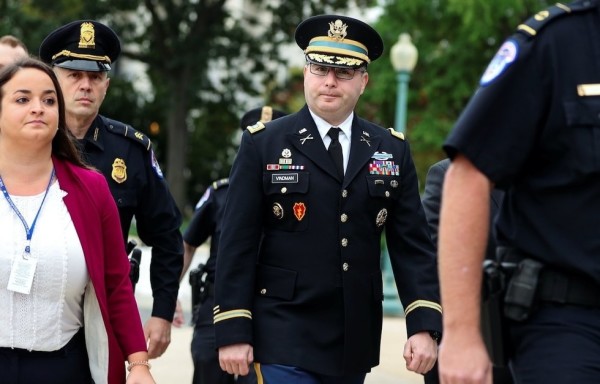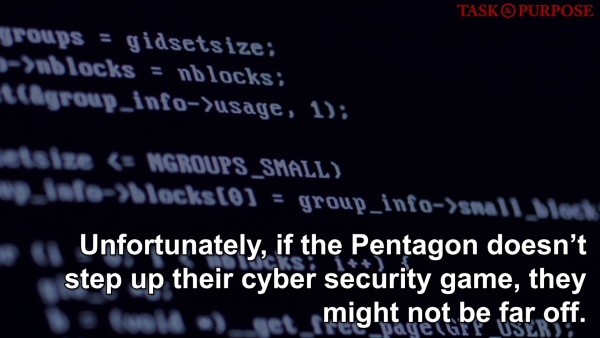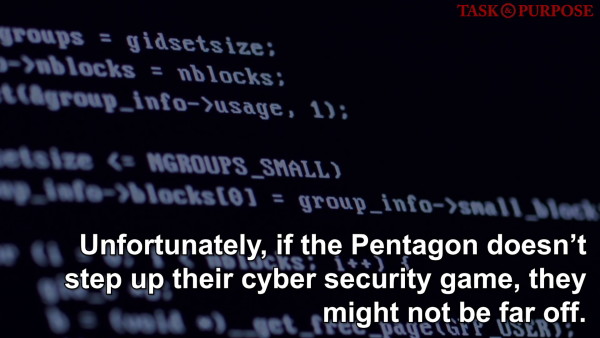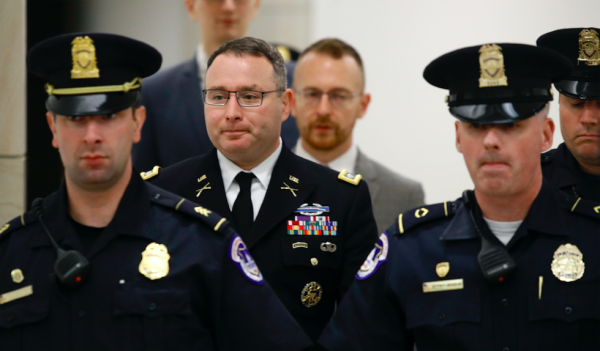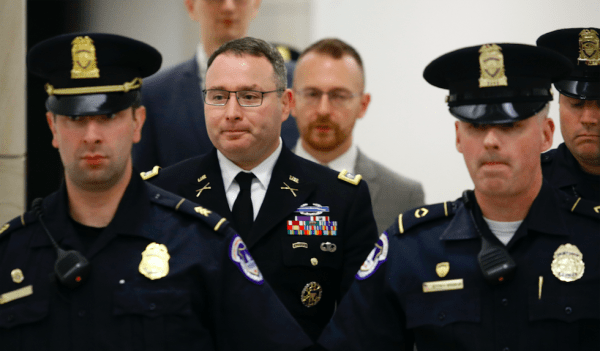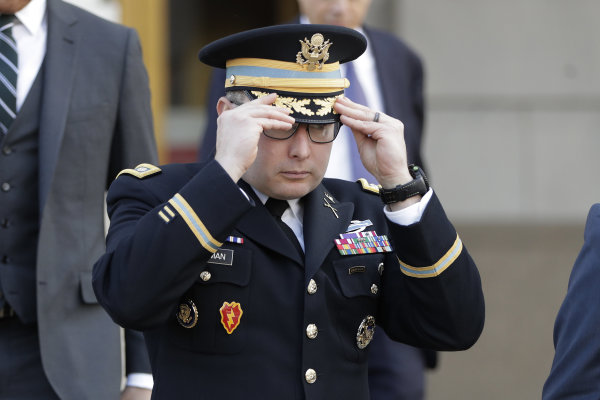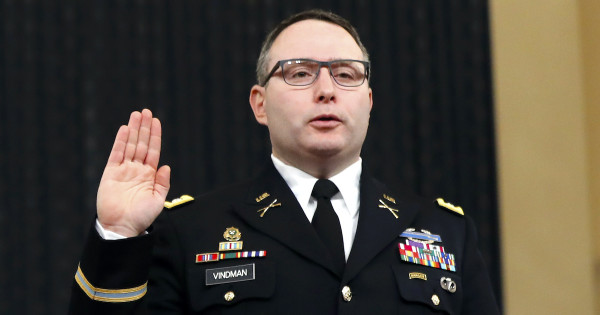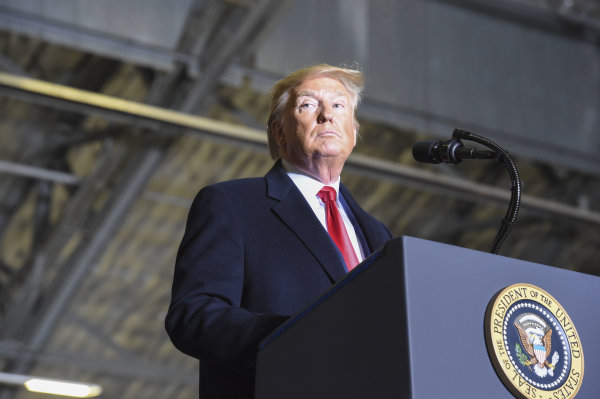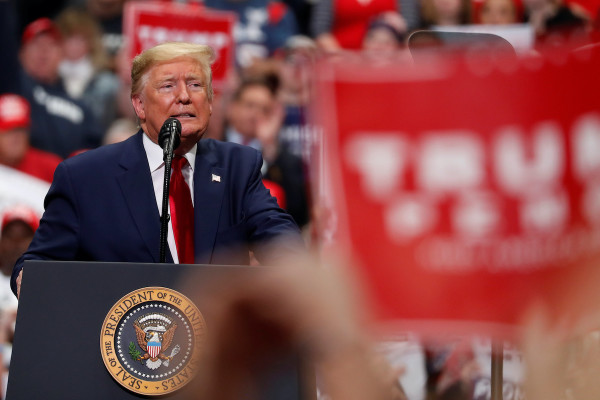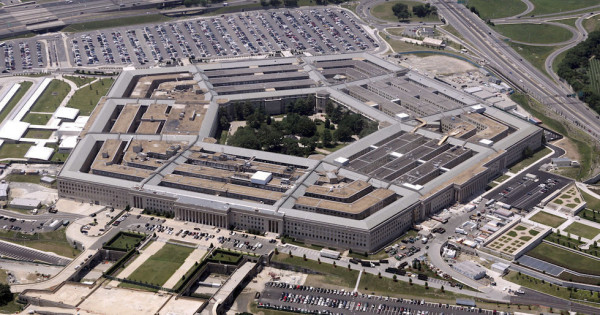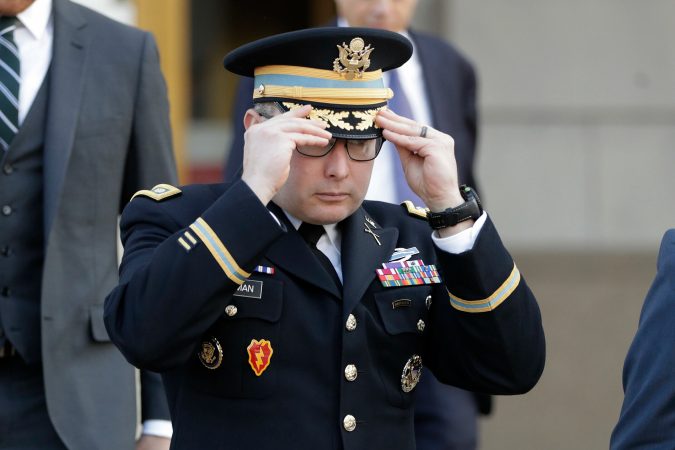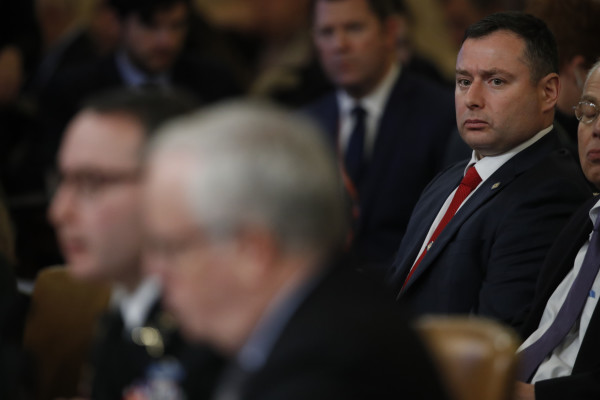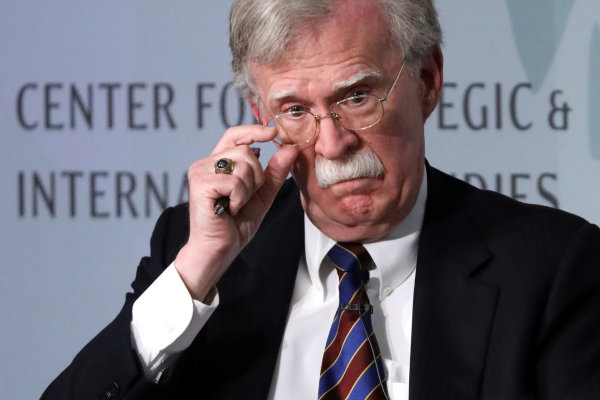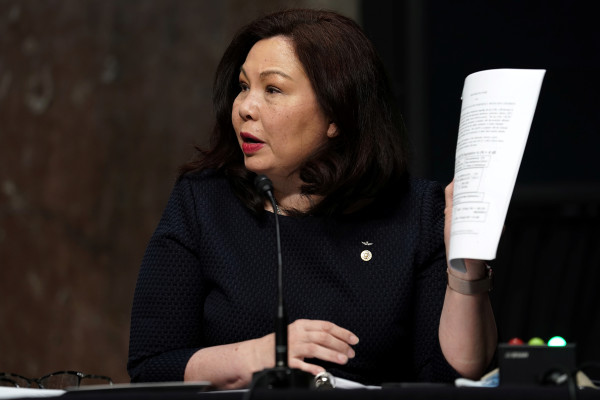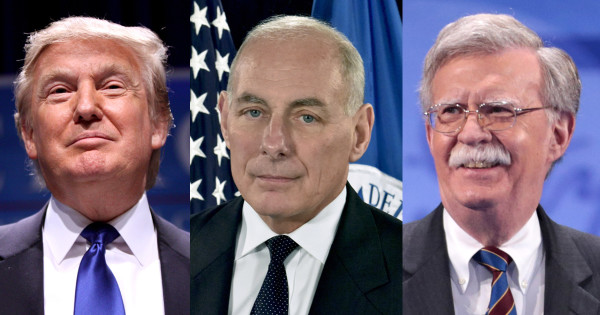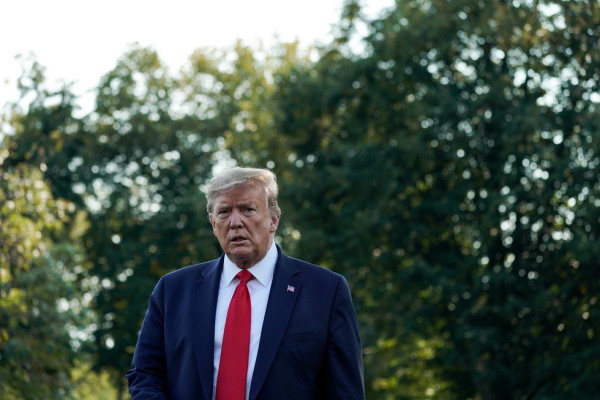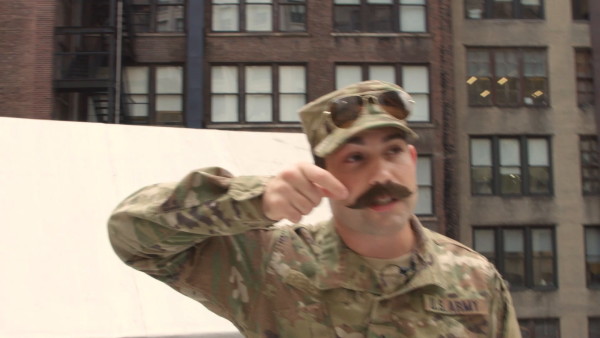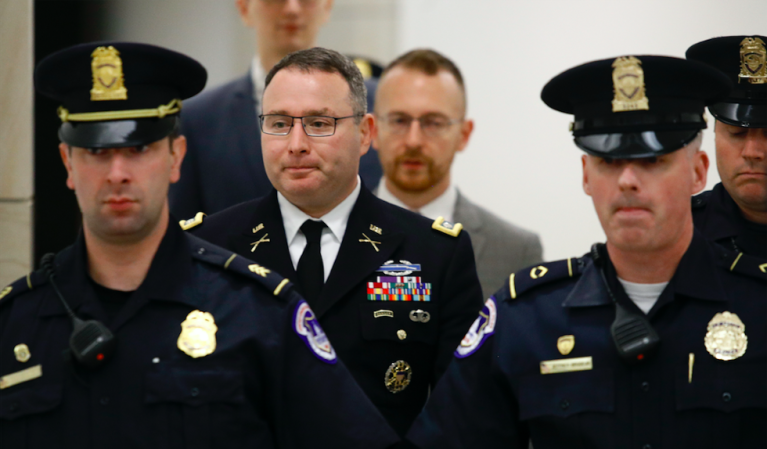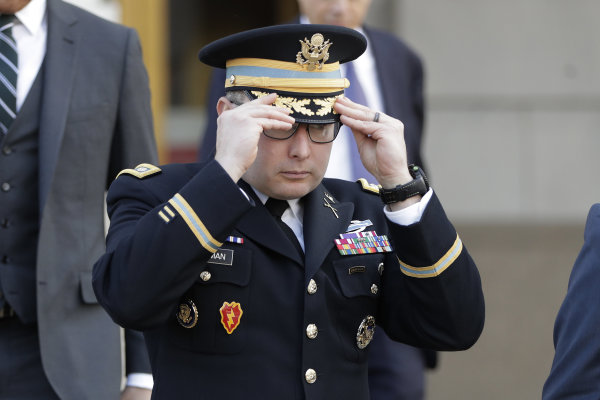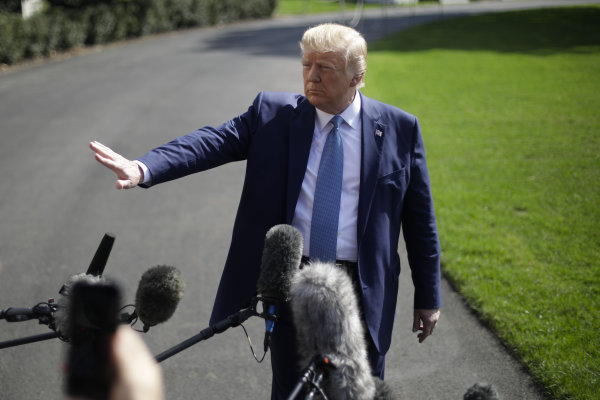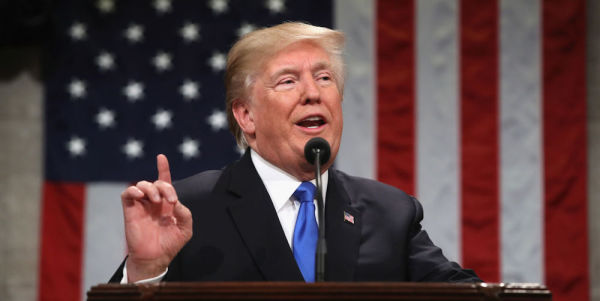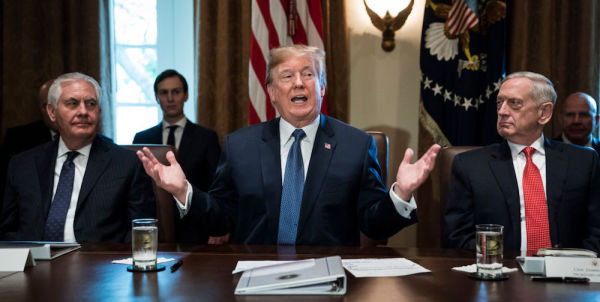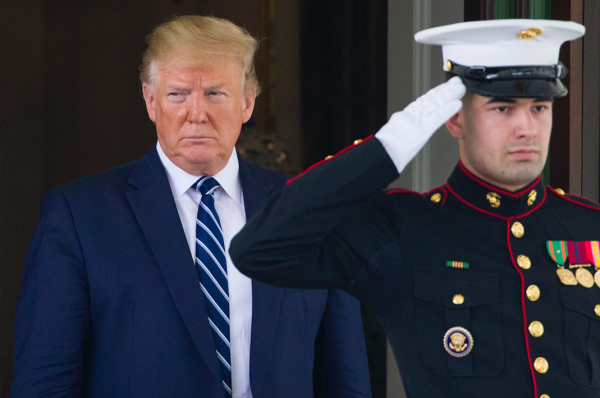Army Lt. Col. Alexander Vindman testified before Congress on Friday that he believed there was “no ambiguity” to what President Trump was asking for on his July 25th call with Ukrainian President Volodymyr Zelensky.
Vindman, an active-duty Army officer currently working on the National Security Council, told lawmakers that, in the call between President Trump and Zelensky, it was “explicit” what Trump was asking for, according to a transcript of his testimony released on Friday
“I mean, there was no ambiguity, I guess, in my mind. He was calling for something, calling for an investigation that didn’t exist into the Bidens and Burisma,” Vindman said. “My visceral reaction to what was being called for suggested that it was explicit. There was no ambiguity.”
Vindman deployed to Iraq in 2004 and was injured by an improvised explosive device a month later; despite the injury, Vindman finished his deployment and returned to the U.S. in 2005. He has received the Purple Heart, according to his service record provided by the Army, along with the Ranger Tab, Parachutist Badge, the Defense Meritorious Service Medal, Army Commendation Medal, and many more.
Trump, along with conservative media, had previously called Vindman’s credibility into question; the president dubbed him a “Never Trumper,’ while Fox News’s Laura Ingraham speculated that Vindman may be a spy because he is originally from Ukraine. Trump later hinted that information would be coming out about Vindman “very soon.”
The Army, however, backed Vindman, saying he “served this country honorably for 20+ years,” and was “fully supported” by the service.
“As his career assignments reflect, Lt. Col. Vindman has a long history of selfless service to his country, including combat. Lt. Col. Vindman is afforded all protections anyone would be provided in his circumstances,” Matt Leonard, an Army spokesperson, previously told Task & Purpose.
Vindman stood by his characterization that Trump ‘demanded’ the investigation in exchange for a meeting
Vindman was pressed by Rep. John Ratcliffe (R-Texas) several times to identify a specific point where Trump “demanded” the Ukrainians complete an investigation into the Bidens in return for a White House meeting. Vindman says that “when the President of the United States makes a request for a favor … I would take it as a demand.”
“Congressman, the power disparity between the President of the United States and the President of Ukraine is vast, and, you know, in the President asking for something, it became — there was — in return for a White House meeting, because that’s what this was about.
This was about getting a White House meeting. It was a demand for him to fulfill his — fulfill this particular prerequisite in order to get the meeting.”
(Page 147)
He said that Amb. Sondland pointed to Mick Mulvaney as the driving force behind the demand
When asked why Ambassador Gordon Sondland believed that an investigation was necessary in order for the Ukrainians to have a White House meeting, Vindman answered that Sondland said it came at the direction of White House Chief of Staff Mick Mulvaney.
Q: “Do you understand how he came to believe that this deliverable was necessary?”
A: “I heard [Sondland] say that this had been coordinated with White House Chief of Staff Mr. Mick Mulvaney.”
Q: “What did he say about that?”
A: “He just said that he had had a conversation with Mr. Mulvaney, and this is what was required in order to get a meeting.”
(Page 29)
He recalls Bolton was ‘distressed’ about a meeting in July in which Sondland brought up the investigation
Vindman said that Fiona Hill, who previously served as the National Security Council’s top Russia specialist and reported to then-National Security Advisor John Bolton, told him that Bolton was “distressed” that Sondland “alluded to investigations” in order for the Ukrainians to get a meeting with Trump after a meeting between Bolton and Oleksandr Danylyuk, the then-head of national security for Ukraine.
Bolton quickly “terminated the meeting” after Sondland “proceeded to discuss the deliverable required in order to get the meeting.”
“[Hill] relayed to me that Ambassador Bolton was — was very irritated by the meeting, and that’s why he ended it abruptly, and that, you know, we discussed the fact that — I think I told her at that point that I had already reported it to legal counsel, and she said she was going to do the same thing.
And we also discussed the fact that we thought it was inappropriate and, you know, had nothing to do with national security, and we were not going to get involved in it.”
(Page 40)
Vindman also said later that Hill said Bolton was “actually fairly distressed by what had occurred,” and that he was “upset with what Ambassador Sondland was attempting to orchestrate.”
(Page 67)
He consistently advised Ukraine to stay out of U.S. politics
Vindman said a number of times that he advised the Ukrainians to stay out of U.S. politics — including once in front of the U.S. delegation when they traveled to Ukraine for Zelensky’s inauguration in May.
He also told them again after the July 25th phone call, which Ratcliffe pointed out in a question.
Q: “So you — a week following you listening in on a phone call with the President of the United states making a request of the Ukrainian Government to assist in ongoing investigations, a member of his National Security Council subsequently told Ukrainian officials to do just the opposite and to ignore his request and stay out of U.S. politics. Is that what we’re to understand from your testimony today?”
A: “That’s an interesting characterization, Congressman. I was certainly not going against the orders of my Commander in Chief. … But I, as a Director on the National Security Council, would certainly not counsel my counterparts to somehow involve themselves into U.S. domestic politics.”
(Page 160-161)
Trump’s line asking to Zelensky to ‘do us a favor’ wasn’t what alarmed him the most about the call
The piece of the memo that Democrats point to the most often is when Trump tells Zelensky, “I would like you to do us a favor, though.”
Vindman told lawmakers that “that particular line in itself and connecting it to the Javelins, it makes sense logically, but that’s not probably the portion of the call that was more alarming. It’s the subsequent portion in which it talks about the investigation into a U.S. citizen.”
(Page 115)
Vindman’s military service played a role in his decisions about the Trump-Zelensky phone call
Vindman pointed to his military career as the the source of his feeling that Trump was “demanding” the investigation in return for a meeting at the White House, and for why he immediately reported it to the NSC legal counsel.
“As a military officer, Congressman, as a military officer, if my superiors teIl me to do something, I take that not as a request, I take that as a demand.”
(Page 151)
“Congressman, I’m just saying that, you know, we make — as military officers, we make judgement calls all the time. Some of them are more important than others. … So I made a judgement call. I thought this was wrong. My experience has always suggested that if there is — if you feel like something is wrong, it is your duty to report it to your seniors, and that’s what I did.”
(Page 154)
He believes the U.S.-Ukraine relationship is ‘damaged and undercut’
Vindman told Rep. Mike Quigley (D-Illi.) that he believes the relationship between the U.S. and Ukraine is “damaged.”
Q: “Well, have you still communicated with ?”
A: “I have, yes.“
Q: “Okay. And can you — has their attitude changed toward us?“
A: “I perceive that — I perceive that that our relationship is damaged. I think as this process wears on, I think the relationship will continue to be damaged and undercut. It undercuts U.S. resolve to support Ukraine and certainly puts a question into their mind whether they, in fact, have U.S. support.“
Q: “A trust issue.“
A: “Yeah, it’s a trust issue, and we are their most important ally. So this is not — this is not helpful in terms of advancing U.S. national security interests.“
(page 234-235)
He made two edits to the memo of the July 25th call that were ultimately not added to the final version
Vindman told lawmakers that he added two edits to the memorandum of the phone call between Trump and Zelensky, based on the notes he took during the call, that ultimately did not make it into the final version.
1. In the final memo, Trump is quoted as saying “Biden went around bragging that he stopped the prosecution so if you can look into it… That sounds horrible to me.”
Vindman said that where the ellipses are, Trump said “there are recordings.”
2. Zelensky is quoted as saying the next prosecutor general will “look into the situation, specifically to the company that you mentioned in this issue. But Vindman says that his notes reflect Zelensky instead mentioning Burisma by name — not “the company.”
Vindman called that “substantive.”
(Page 53-55)
Vindman said he believed the investigations Trump brought up in the call were for his own political benefit
Q: “But did you understand that these investigations that the President was asking for may be to his own political benefit as well?“
A: “Yes.“
(Page 58)


